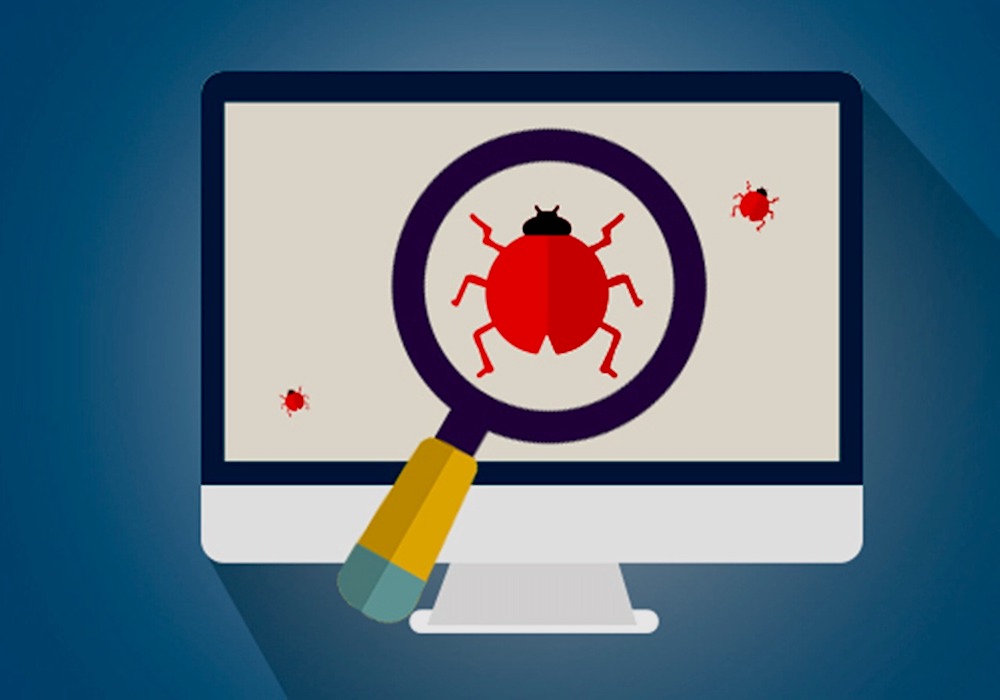· Alex · security · 11 min read
How Do People Become Hackers?
How to get into ethical hacking, motivation, mindset, essential skills, pathways, legal aspects

How Do People Become Hackers
A hacker is, in essence, someone who’s deeply curious about understanding the inner workings of technology and computer systems. They possess a knack for finding clever ways to exploit vulnerabilities, manipulate systems, or gain unauthorized access to networks and devices. Now, why should we care about how hackers are made? Perhaps you want to be one! If you want to stick to defender side, understanding how hackers come into being helps us stay ahead of the game. By knowing their motivations, skill sets, and thought processes, we can better protect our digital assets, mitigate risks, and even leverage their expertise for good. We can also learn from their creativity and out-of-the-box thinking to develop more robust systems and solutions.
Motivations Behind Becoming a Hacker
Curiosity and Desire for Knowledge
The classic driving force behind many hackers is an insatiable curiosity and a hunger for knowledge. These could be the folks who, as kids, would take apart gadgets just to see how they worked, and then put them back together again. They’re captivated by the intricate workings of computer systems, networks, and software, and they thrive on the challenge pushing the limits of technology. It’s all about the intellectual satisfaction of solving a complex puzzle!
Financial Gain
Let’s be honest, hacking can be pretty lucrative for some individuals. These hackers, often dubbed “black hat hackers,” exploit vulnerabilities in systems or steal sensitive data for financial gain. They might engage in activities such as identity theft, credit card fraud, or ransomware attacks to line their pockets with some cash. The potential for financial reward can be a powerful motivator for those who choose to operate on the dark side.
Prestige and Ego
For some hackers, it’s all about the thrill of the chase and the prestige that comes with proving their skills. They might target high-profile organizations or crack seemingly impenetrable systems just for the ego boost and bragging rights. They often want to be recognized within their community or to gain the respect of their peers, and pulling off a high-profile hack can be the ultimate status symbol.
Activism (Hacktivism)
Not all hackers have selfish or malicious intentions. In fact, some hackers use their skills to make a statement, promote a cause, or fight for social justice. These “hacktivists” might target governments, corporations, or other organizations that they believe are involved in unethical practices, and their goal is often to expose wrongdoing or raise awareness about important issues.
Revenge
Finally, there are those who become hackers out of a desire for revenge. These individuals might have a personal vendetta against a specific person or organization, and they use their hacking skills to exact retribution. Whether it’s a disgruntled employee seeking payback against their employer or someone with a personal grudge, revenge can be a powerful motivator that drives some people to delve into the world of hacking.
The Hacker Mindset
Tenacity and Persistence
One of the hallmarks of a true hacker is their tenacity and persistence. Let’s face it, hacking isn’t always a walk in the park. It can be time-consuming, frustrating, and downright exhausting. But the most skilled hackers don’t let setbacks or challenges deter them. They keep pushing forward, trying new approaches, and learning from their failures until they finally achieve their goal. This relentless determination is a crucial part of the hacker mindset.
Creativity and Out-of-the-Box Thinking
If there’s one thing that hackers are known for, it’s their ability to think outside the box. They’re not content with just following the rules or sticking to conventional methods. Instead, they’re constantly exploring new ideas, experimenting with different techniques, and finding inventive ways to bypass security measures or exploit vulnerabilities. This creative approach, coupled with their deep understanding of technology, allows them to see possibilities and connections that others might miss.
Passion for Problem-Solving
At the heart of hacking lies an intense passion for problem-solving. Hackers thrive on the challenge of cracking codes, deciphering complex systems, and discovering new ways to manipulate technology. They view each new obstacle as an opportunity to test their skills and expand their knowledge. For them, there’s nothing more satisfying than the moment when all the pieces fall into place and they’ve successfully outsmarted a seemingly impenetrable system.
Strong Understanding of Technology and Systems
Last but certainly not least, a deep understanding of technology and systems is an essential part of the hacker mindset. Hackers need to be well-versed in a variety of technical domains, including programming languages, networking, operating systems, and cybersecurity concepts. This knowledge allows them to identify vulnerabilities, anticipate potential pitfalls, and devise effective strategies for exploiting or defending against various types of attacks. In a nutshell, the hacker mindset is a unique blend of tenacity, creativity, problem-solving prowess, and technical expertise. These qualities enable hackers to navigate the complex world of cybersecurity and make their mark, whether they’re using their skills for good or ill.
The Learning Curve: Essential Skills and Knowledge
Programming Languages (Python, C++, Java, etc.)
First and foremost, hackers need to be comfortable with a variety of programming languages. This is their bread and butter, the building blocks they use to create tools, write exploits, and automate tasks. While there’s no definitive list of “must-know” languages, some popular ones among hackers include Python, C++, Java and C#. Each language has its own unique features and use cases, so being familiar with multiple languages gives hackers the flexibility to choose the best tool for the job.
Networking and Network Protocols
If hacking is a game, then computer networks are the playing field. Hackers need to have a deep understanding of networking concepts and protocols, such as TCP/IP, DNS, HTTP, and SSL, to effectively navigate and manipulate these digital environments. This knowledge allows them to sniff out vulnerabilities, intercept data, and launch targeted attacks on networked systems.
Operating Systems (Linux, Windows, macOS)
Next up on our list of essential skills is a solid grasp of various operating systems, such as Linux, Windows, and macOS. Each OS has its own quirks, features, and security mechanisms, so being well-versed in their inner workings is crucial for hackers. Linux, in particular, is a favorite among hackers due to its open-source nature and the extensive range of powerful tools it offers.
Web Technologies (HTML, JavaScript)
With the internet playing such a central role in our lives, it’s no surprise that web technologies are a key area of focus for hackers. To effectively exploit web-based vulnerabilities, hackers need to be proficient in HTML and JavaScript, as well as familiar with frameworks, libraries, web-app servers, proxies, and content management systems. This knowledge allows them to craft targeted attacks, such as cross-site scripting (XSS) and infiltrate web applications.
Cybersecurity Concepts (Encryption, Authentication, etc.)
To stay ahead in the ever-evolving world of cybersecurity, hackers must have a firm grasp of core concepts such as encryption, authentication, and access control. Understanding these principles helps hackers identify potential weaknesses in security systems and develop effective strategies for exploiting or defending against attacks.
Vulnerability Assessment and Penetration Testing
Last but not least, vulnerability assessment and penetration testing (VAPT) are essential skills for any hacker worth their salt. VAPT involves the systematic process of identifying, evaluating, and exploiting vulnerabilities in computer systems and networks. By mastering these techniques, hackers can pinpoint weak spots, prioritize threats, and test the effectiveness of security measures.
Educational Pathways
Formal Education (Computer Science, Cybersecurity Degrees)
One common route into the world of hacking is through formal education. Many universities and colleges offer degrees in computer science, cybersecurity, or related fields, providing students with a solid foundation in programming, networking, and security concepts. These programs often include hands-on projects, internships, and access to knowledgeable professors, making them a great way to build your skill set and establish a professional network.
Online Courses and Certifications
If traditional education isn’t your cup of tea, or you’re looking to expand your skill set further, online courses and certifications are a fantastic option. There are countless online platforms that offer a wide range of courses, from beginner-friendly introductions to more advanced, specialized topics. Some popular certifications in the cybersecurity field include Certified Ethical Hacker (CEH), CompTIA Security+, and Offensive Security Certified Professional (OSCP). Then there are more advanced certifications like the Offensive Security Web Expert, Offensive Security Exploit Developer and Offensive Security Experienced Pentester. These certifications not only help you build your skills but also demonstrate your expertise to potential employers or clients.
Self-Directed Learning and Experimentation
Of course, one of the most important aspects of becoming a hacker is cultivating a strong sense of curiosity and a passion for learning. Many successful hackers are largely self-taught, using online resources, books, and hands-on experimentation to develop their skills. This approach allows you to tailor your learning experience to your interests, work at your own pace, and explore new ideas and techniques as they emerge.
Cybersecurity Competitions and Events
Last but not least, participating in cybersecurity competitions and events is a fantastic way to put your skills to the test, learn from others, and get a taste of what it’s like to work in the field. Capture The Flag (CTF) competitions, for example, challenge participants to solve a variety of hacking challenges and puzzles, often in a time-sensitive, competitive environment. Conferences and events like DEF CON, Black Hat, and BSides also offer workshops, talks, and networking opportunities, giving you a chance to learn from experts, share your knowledge, and connect with like-minded individuals.
The Role of Hacker Communities
Online Forums
Online forums have long been a staple of the hacker community. These digital spaces provide a platform for hackers to ask questions, share tips and tricks, collaborate on projects, and discuss the latest trends and developments in the field. These communities can be a treasure trove of information and insights, but remember to always exercise caution and practice good internet hygiene when participating in online forums.
Social Media Groups and Influencers
In today’s interconnected world, social media has become an important hub for hacker communities. Platforms like Twitter, LinkedIn, and Reddit host countless groups and influencers who share news, insights, and resources related to hacking and cybersecurity. Following these accounts and participating in discussions can help you stay informed, learn from others, and connect with fellow hackers.
Conferences and Events (DEF CON, Black Hat, etc.)
As I mentioned earlier, conferences and events play a crucial role in bringing the hacker community together. Annual gatherings like DEF CON, Black Hat, and BSides offer a unique opportunity for hackers to learn from experts, share their own knowledge, and forge connections with others who share their passion for hacking. These events often feature workshops, presentations, and hands-on challenges, providing a fantastic opportunity to sharpen your skills and expand your horizons.
Local Meetups and Workshops
Last but not least, local meetups and workshops are a great way to connect with fellow hackers in your area. These gatherings often take place at coworking spaces, libraries, or community centers and provide a more intimate setting for learning, sharing, and networking.
The Legal and Ethical Aspects of Hacking
The Computer Fraud and Abuse Act (CFAA)
In the United States, the primary legislation governing computer-related activities is the Computer Fraud and Abuse Act (CFAA). This federal law, enacted in 1986, prohibits unauthorized access to computer systems and networks, as well as the use of such access to commit fraud, cause damage, or steal information. Violating the CFAA can result in severe penalties, including hefty fines and even imprisonment. It’s important for aspiring hackers to familiarize themselves with the CFAA and similar laws in their respective countries, in order to stay within legal boundaries.
Responsible Disclosure of Vulnerabilities
For those who choose to use their hacking skills to help protect organizations and individuals from cyber threats, responsible disclosure is a critical concept to understand. When a hacker discovers a vulnerability in a system, they can choose to disclose the information to the affected parties in a responsible manner, giving them an opportunity to address the issue before it’s exploited by malicious actors. Responsible disclosure helps ensure that your actions are seen as beneficial rather than harmful, and can even lead to professional opportunities, such as bug bounty programs or consulting work.
Conclusion
Throughout this post, we’ve delved into various aspects of how people become hackers. We started by examining the motivations behind hacking. We then explored the hacker mindset, essential skills and knowledge required for hacking and touched on the different educational pathways available to aspiring hackers. As we conclude this exploration, we encourage you to consider the potential benefits of pursuing ethical hacking as a career or hobby. Remember that the key to success in this field lies in fostering a strong sense of curiosity, a passion for learning, and a commitment to ethical and responsible behavior.
About the Author:
Application Security Engineer and Red-Teamer. Over 15 years of experience in Application Security, Software Engineering and Offensive Security. OSCE3 & OSCP Certified. CTF nerd.


